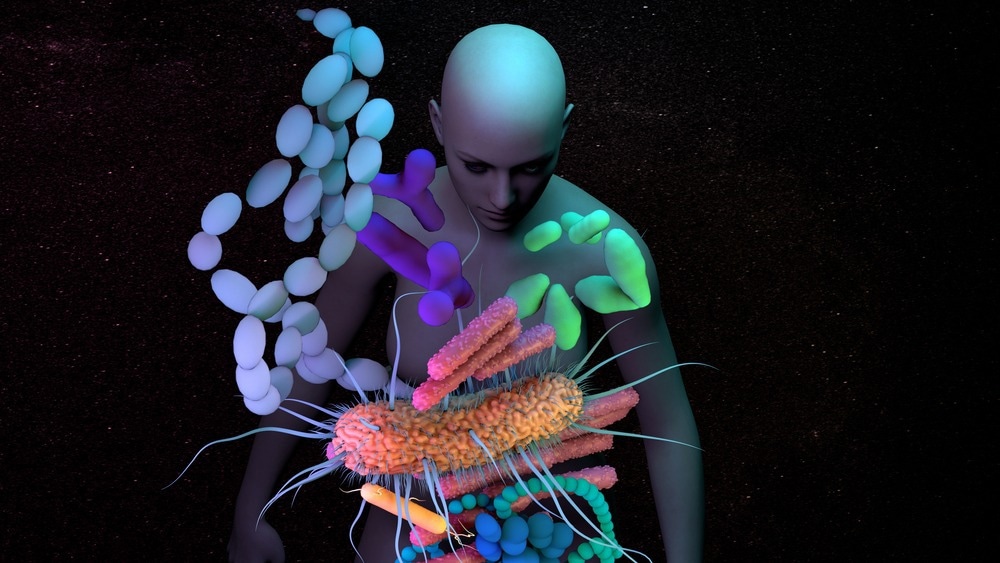Introduction
What is personalized nutrition?
Why do we need it?
The crucial role of the microbiome
How does genetics fit in?
Personalized nutrition in the clinic
Challenges to implementing personalized nutrition
References
Personalized nutrition is an emerging area of research. Advances in technologies that enable testing and developments in our understanding of factors affecting our individual digestive and metabolic profile have given rise to novel methods for personalizing our diet.
This article explores the rise of personalized nutrition, including its necessity, some key areas of research, and the challenges ahead for this new and exciting scientific avenue.

Image Credit: BONDART PHOTOGRAPHY/Shutterstock.com
What is personalized nutrition?
Personalized nutrition has its basis in the concept that one size does not fit all. We are all individuals with differences in our biochemistry, metabolism, genetics, and microbiota. Thus, a specifically created personalized nutritional plan can be devised to consider these factors in accordance with our personal eating habits, body measurements, weight, cholesterol levels, and lifestyle. Personalized nutrition goes by a variety of alternative names: "precision nutrition," "individualized nutrition," and "nutritional genomics," and these terms can have overlapping meanings in this literature.
Why do we need it?
Currently, we have a crisis on our hands regarding chronic disease. In the US alone, around 60% of American adults suffer from one or more chronic diseases (Bush et al., 2019). Seven of the ten top leading causes of death in the US are on account of chronic diseases.
Poor nutrition is a driver of chronic disease. Cardiometabolic conditions and diet-related cancers are among the leading causes of death worldwide. Meanwhile, a mountain of evidence suggests a healthy diet abundant in fruits, vegetables, whole grains, legumes, and nuts is associated with lower levels of these diseases across various adult subgroups.
The "omics sciences" each have relevance to personalized nutrition ––nutritional genomics, metabolomics, proteomics, microbiomics, epigenomics, and transcriptomics. These analyses identify relevant molecules such as metabolites, proteins, microbes, and genes alongside investigations into body system function and nutritional and environmental facets to understand an individual's specific needs better.
The crucial role of the microbiome
The microbiome plays a vital role in the efficient functioning of the gut, and while it is difficult to define what exactly is a 'healthy' microbiome, as there are variations according to a person's age, environment, or diet, a healthy gut microbiome can nevertheless be characterized by its diversity, stability, and capacity to fulfill metabolic functioning. The microbiome plays an important role in the following activities; vitamin production, immune system development, epithelial homeostasis, and metabolite production.
For example, studies have revealed the etiology of Inflammatory Bowel Disease (IBD) to be strongly connected to changes in the enteral microbiome. In addition, 'good' and 'bad' bacteria have been implicated in individual risk for common conditions like Type-2 diabetes, heart disease, and obesity.
We can alter our macrobiotic profile by selecting optimal foods following our individual biology. Expert nutritionists may prescribe personalized diets, and it is possible now to get hold of specialist home-testing kits. Interest in personalized nutrition is on the rise though the science is still in its infancy.

Image Credit: Design_Cells/Shutterstock.com
How does genetics fit in?
Research into insulin resistance has demonstrated that our individual genetics may influence how food is metabolized. A recent study at King's College London, called the PREDICT study, measured sugar, insulin, and fat markers in twins' blood before and after food ingestion. Although the twins shared the same DNA profile, they were nevertheless found to show different responses to food. The study demonstrated that DNA testing by itself may not give us a complete picture, thus directing our attention toward environmental factors and the importance of the gut microbiome. The complexities of untangling these factors warrant continued research into this emerging area of science.
Personalized nutrition in the clinic
Personalized nutrition has entered the clinical setting through the implementation of the therapeutic diet for the optimization of health. A good example is an allergen-free diet devised to remove immunological triggers. Such diets may need to be peanut-free, gluten-free, tree-nut-free, low FODMAP (fermentable carbohydrates), and casein or dairy-free.
Such plans are indicated in the case of known allergies, intolerances, and sensitivities and to identify unknown triggers via elimination. The allergen-free diet is tailored according to individual response, including the type of immune response and other contributing causes such as lack of enzymes or gastrointestinal factors.
Challenges to implementing personalized nutrition
There are problems and challenges to overcome before the benefits of personalized nutrition can be fully realized. These challenges concern data and methodological issues, education, and a consideration of the ethical and legal aspects involved.
First, the expansion of bioinformatics and the availability of vast data in our hands presents a challenge that nutritional experts are only too keen to surmount. Collecting, organizing, and analyzing these datasets is a huge task, and it is both expensive and time-consuming. Due to the complexity of the data, the conclusions drawn from it can also prove controversial, and the results of clinical trials can be questionable because of a lack of reproducibility.
Another issue is that of education. Nutritional practitioners, including primary care physicians and registered dietitians, need to be apprised of the latest developments in the field of personalized nutrition, and this is an undertaking for the entire health care team. Finally, the ethical and legal aspects require further consideration through, for example, the protection of consumer privacy associated with the use of technologies and tests.
References:
- BBC food. 2022. What is a personalised diet and is it right for you? Online: https://www.bbc.co.uk/food/articles/personalised_nutrition.
- Bush, C. et al. 2019. Toward the Definition of Personalized Nutrition: A Proposal by The American Nutrition Association. JACN. Doi: 10.1080/07315724.2019.1685332.
- Harvard School of Public Health. 2022. Precision Nutrition. Online: https://www.hsph.harvard.edu/nutritionsource/precision-nutrition/.
Further Reading